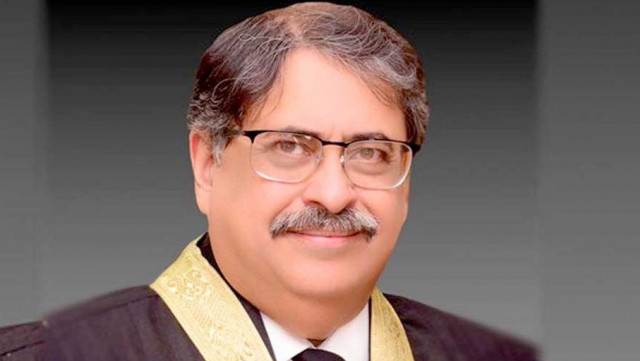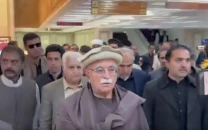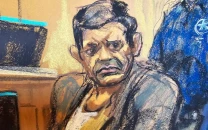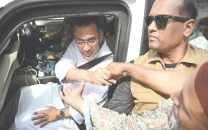Justice Minallah’s remarks stir legal debate
One section of apex court’s larger bench was visibly surprised over Justice Minallah's remarks

Supreme Court Judge Justice Athar Minallah's remarks about examining the legality of dissolution of Punjab and Khyber-Pakhtunkhwa assemblies have stirred a legal debate.
Chief Justice of Pakistan (CJP) Umar Ata Bandial while dictating the order said that Justice Minallah's question would be included in the written order, which is still awaited.
However, one section of apex court’s larger bench was visibly surprised over Justice Minallah's remarks.
A lawyer, representing a major political party, said that he would mainly focus on Justice Minallah's question during his arguments.
He asked why a chief minister should not mention reasons for the dissolution of an assembly when a court seeks explanation from the executive authorities in its order before the transfer of any office prematurely.
He also referred to several statements of former Punjab chief minister Pervaiz Elahi wherein he had admitted that few individuals were in favour of the dissolution of the provincial assembly.
The legal experts, however, see a limited scope of judicial review in case the dissolution of Punjab Assembly is challenged in superior courts.
A senior lawyer observed that it was a case of first impression.
He, however, noted that Elahi’s advice for the dissolution of assembly was not against the spirit of Constitution, saying the ex-Punjab chief minister had exercised his constitutional powers.
Another lawyer maintained that the chief minister and premier’s discretionary powers regarding the dissolution of assemblies should be regulated, adding that there needed to be a valid reason for dissolving the assembly.
He questioned what would happen if a chief minister dissolved an assembly two months after the general elections, while giving an example of UK Parliament where lawmakers complete their tenure despite several in-house changes.
Renowned lawyer Hafiz Ahsaan Ahmed Khokhar maintained that the Constitution does not restrict the prime minister and chief minister from dissolving the National Assembly and the provincial assembly, respectively.
However, he said, only in two situations the premier and the chief minister cannot dissolve the assemblies – first when a vote of no- confidence has been moved – second when the president or governor ask the prime minister and chief minister, respectively, to take vote of trust.
Meanwhile, it is learnt that Mansoor Awan, Farooq H Naek and Kamran Murtaza would represent the major ruling parties in this case.
Sources revealed to The Express Tribune that a joint statement is expected on behalf of ruling parties. It is also decided that these parties would raise objection on two members of the bench.
However, the law is clear that it is the discretion of a judge to recuse himself from the bench.
A senior PML-N leader said that they would not support delay in polls in Punjab.



















COMMENTS
Comments are moderated and generally will be posted if they are on-topic and not abusive.
For more information, please see our Comments FAQ